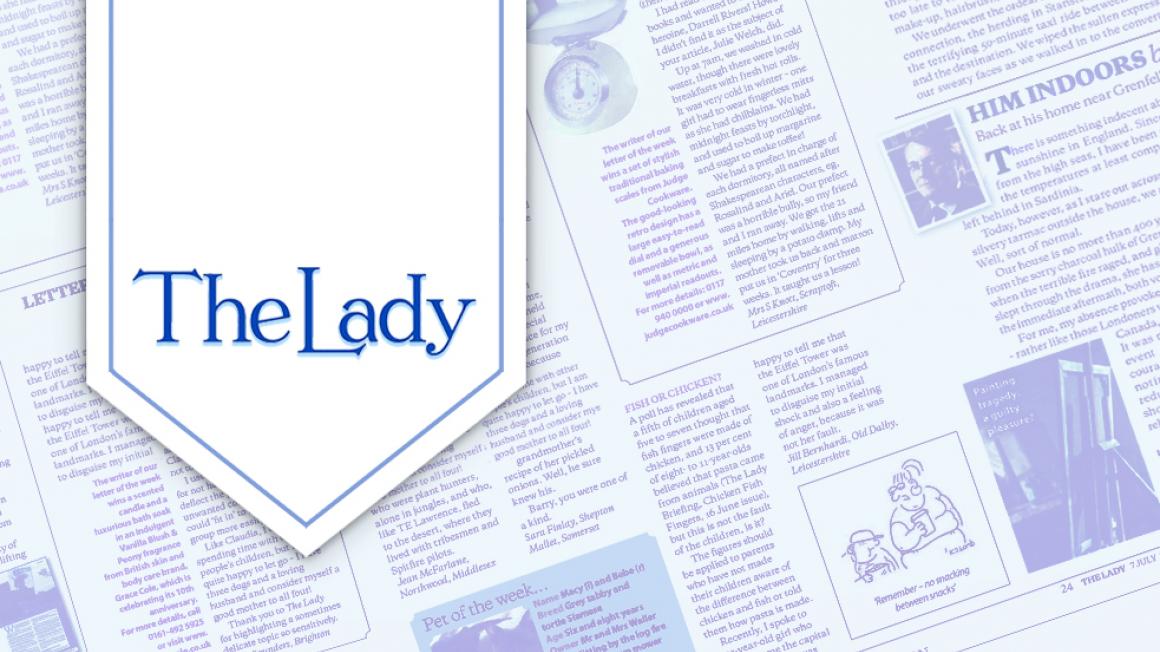The Lady Guide to Modern Manners: 29 January
I am upset because a friend accused me of not keeping a secret. But my impression is she was telling everyone how much she’d sold her house for. I find it hard to know these days what information is private. Do you agree?
Bernadette Joiner, Brighton
Dear Bernadette,
Certainly at one time it was very clear where the boundaries were. Illness, especially mental illness, financial affairs, what might politely be called marital problems, and indeed vast swathes of intimate life were private, out of bounds except to a few carefully chosen confidantes who could be trusted to keep their mouths shut. Now people display their visits to hospital, fully illustrated, on Facebook.
The received wisdom of our age is that concealment is ‘unhealthy’. The psychotherapeutic model encourages us to talk about our problems on the grounds that putting them into words is a way of expelling them. Or that a cycle of addiction can be broken if the shameful secret is made public. In America they like to do this on TV so that millions of viewers can ‘hold’ the wretched addict in some kind of bizarre hug over the airwaves. Concerning money, standards have changed – up to a point. It’s no longer quite so vulgar to mention what you paid for things or what your house might fetch.
This openness has its ridiculous side. In those American TV shows, and British ones, the ‘contestants’ are in danger of becoming a grotesque entertainment, like a 19th-century ‘freak’ show. But on the whole, our freer, more open lives are a vast improvement surely. Let your secrets see the light of day and watch as all anxiety evaporates. So the rule of modern manners is that nothing is confidential unless clearly stated or unless it is glaringly obvious. Remember the guest who said breezily at a dinner, ‘Oh, didn’t you know that he had an affair with so-and-so…’ The thing was he was speaking about his host, who, with his wife, was giving the dinner.
Which brings in another problem. Because one thing has not changed: very few people can keep a secret. It’s quite a thing to burden someone with. Sometimes it’s hard to remember what’s supposed to be confidential and what not. Besides, there is a certain type, to be honest, who enjoys the drama of having lots of secrets and telling everyone about them – in the strictest confidence, of course. It’s a rather immature, attention-seeking carry-on, similar to the teenager who keeps a diary and leaves it lying around. The vanity of both the purveyor of secrets and the breaker of confidences is forgivable. There’s only one way to guarantee absolute secrecy: don’t tell anybody.
Please send your questions to thomas.blaikie@lady.co.uk or write to him at The Lady, 39-40 Bedford Street, London WC2E 9ER
WHAT TO DO ABOUT… The Double Handshake
Much disquiet over the effrontery of Ant (of Ant and Dec, but which is which?) who dared to inflict upon the Prince of Wales a double handshake. This was in the course of a TV documentary about The Prince’s Trust. I have to say that I had never heard of the double handshake before. The term is confusing: it appears to involve placing the left hand on top of the right at the crucial moment when that hand is clasping the other person’s – in this case belonging to the Prince. The conventional handshake (these days looked upon by some as an outrage: ‘Have you got intimacy issues? Why aren’t you kissing and hugging?’) is supremely egalitarian. It really isn’t possible to mess around with it. But this double handshake business introduces an element of one-upmanship. It is favoured by politicians. ‘I’m chummier than you,’ it signals. Another method is to grasp with the left hand your opponent’s arm as you shake their hand.My correspondent, Ian Williams of Usk, tells me that normal handshaking started in 350BC and shows that one is unarmed. It was good enough then…


